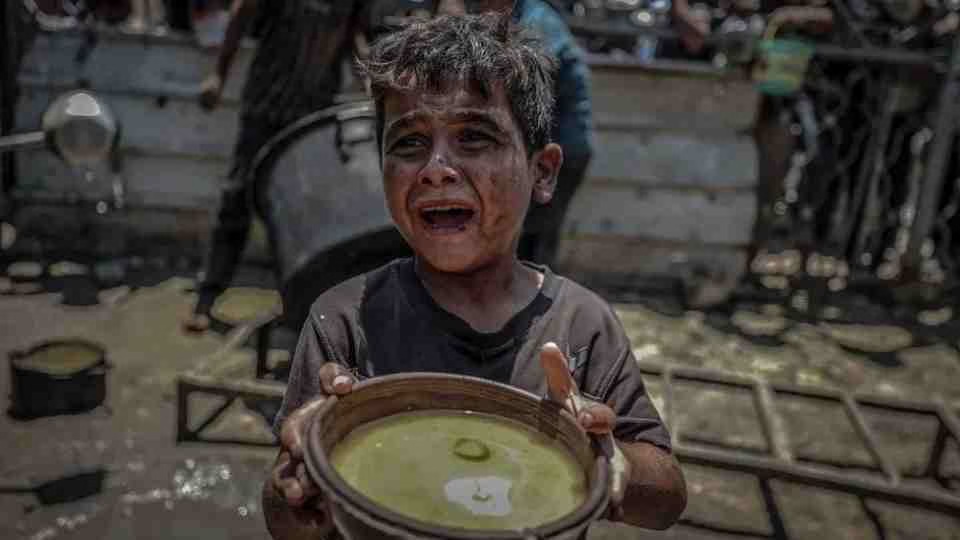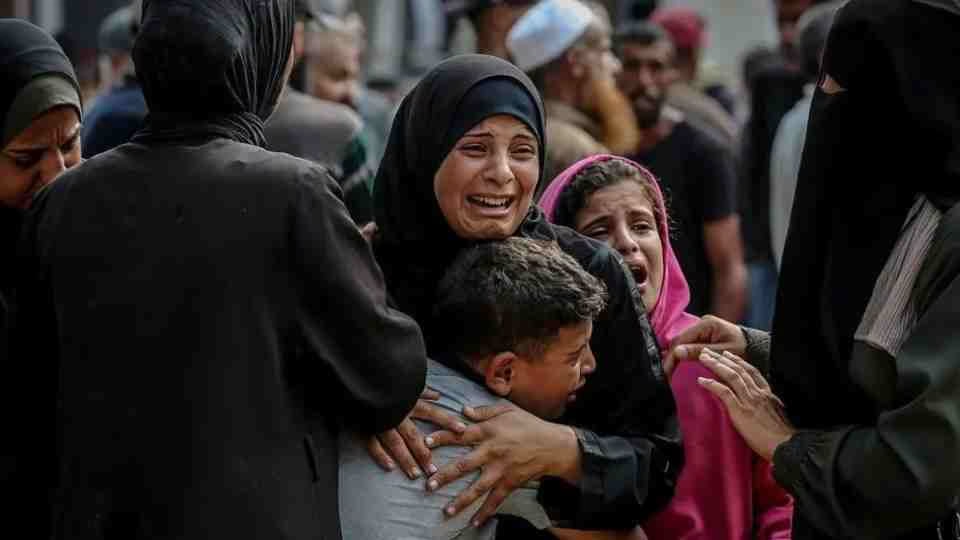The United Nations has confirmed famine conditions in Gaza City and surrounding areas, with Secretary-General António Guterres calling the situation a “failure of humanity” and a “man-made disaster.”
Catastrophic Food Security Crisis
The Integrated Food Security Phase Classification (IPC), a UN-backed organization that monitors global hunger levels, has elevated parts of Gaza to Phase 5 – the most severe classification on its scale. This designation means more than half a million people throughout Gaza are experiencing “catastrophic” conditions marked by starvation, extreme poverty, and death.
The IPC warns that without immediate large-scale intervention, famine-related deaths will escalate unacceptably. The organization projects the crisis will spread to Deir al-Balah and Khan Younis between mid-August and late September.
During this timeframe, nearly 641,000 people – approximately one-third of Gaza’s population – are expected to face catastrophic Phase 5 conditions. Additionally, 1.14 million people (58% of the population) will likely experience Phase 4 “emergency” conditions.
The report also forecasts that malnutrition could threaten 132,000 children under five years old through June 2026.

Human Impact
Gaza’s Hamas-controlled health ministry reports 271 malnutrition deaths since the conflict began, including 112 children.
Local residents describe the devastating reality. Reem Tawfiq Khader, a 41-year-old mother of five from Gaza City, said: “The declaration of famine came too late, but it is still important. We haven’t eaten any protein for five months. My youngest child is four years old – he doesn’t know what fruit and vegetables look or taste like.”
Another resident, Rida Hijjeh, 29, described how her five-year-old daughter Lamia’s weight plummeted from 19kg to 10.5kg. Previously healthy before the war, Lamia now suffers from leg swelling, hair loss, and neurological problems. “This all happened only because of the famine,” Hijjeh explained. “There is simply nothing for the child to eat.”
International Response and Accusations
UN officials have been unequivocal in their assessment. Secretary-General Guterres stated: “Just when it seems there are no words left to describe the living hell in Gaza, a new one has been added: ‘famine’.” He emphasized Israel’s legal obligations under international law to ensure food and medical supplies reach the population.
UN aid chief Tom Fletcher declared the famine “entirely preventable,” attributing it to “systematic obstruction by Israel” preventing food delivery.
Philippe Lazzarini, head of UNRWA (the UN agency for Palestinian refugees), characterized the situation as “starvation by design & man-made by the Government of Israel.”
UN Human Rights Chief Volker Turk described the famine as resulting directly from Israeli government actions that have “unlawfully restricted” aid entry.
UK Foreign Secretary David Lammy called it a “moral outrage,” stating: “The Israeli government’s refusal to allow sufficient aid into Gaza has caused this man-made catastrophe.”

Israeli Response
Israel has categorically rejected these assessments. The government labeled the IPC report an “outright lie” and denies both the existence of starvation in Gaza and accusations of restricting aid.
Prime Minister Benjamin Netanyahu stated: “Israel does not have a policy of starvation, Israel has a policy of preventing starvation. Since the beginning of the war Israel has enabled 2 million tons of aid to enter the Gaza Strip, over one ton of aid per person.”
These denials contradict statements from over 100 humanitarian organizations, ground witnesses, multiple UN agencies, and several Israeli allies, including the UK.
Aid Delivery Challenges
The aid situation remains contentious. Israel’s military coordination body (Cogat) claims approximately 300 aid trucks enter Gaza daily, while the UN maintains 600 trucks are needed to prevent widespread starvation.
Recent Israeli aid initiatives have faced criticism. Military airdrops of humanitarian supplies were dismissed by aid agencies as a “grotesque distraction,” with safety concerns arising after reports of civilians killed by falling pallets. BBC Verify identified 10 instances where aid was dropped in areas the Israeli military had warned people to avoid.
While Israel announced humanitarian corridors for UN convoys, the UN warned Tuesday that the current “trickle of aid” remains insufficient to prevent mass starvation.
Historical Context
The IPC has classified only four famines since its establishment in 2004, most recently in Sudan in 2024. While the IPC identifies famine conditions, official famine declarations typically come from governments or the United Nations.
This crisis unfolds as Israel prepares a new military operation targeting Gaza City. The current conflict began following Hamas’s October 7, 2023 attack on southern Israel, which killed approximately 1,200 people and resulted in 251 hostages.
Gaza’s Hamas-run health ministry reports at least 62,122 deaths since the conflict began. Over 90% of Gaza’s population has been displaced multiple times, with similar percentages of homes damaged or destroyed. The territory’s healthcare, water, sanitation, and hygiene infrastructure has completely collapsed.






